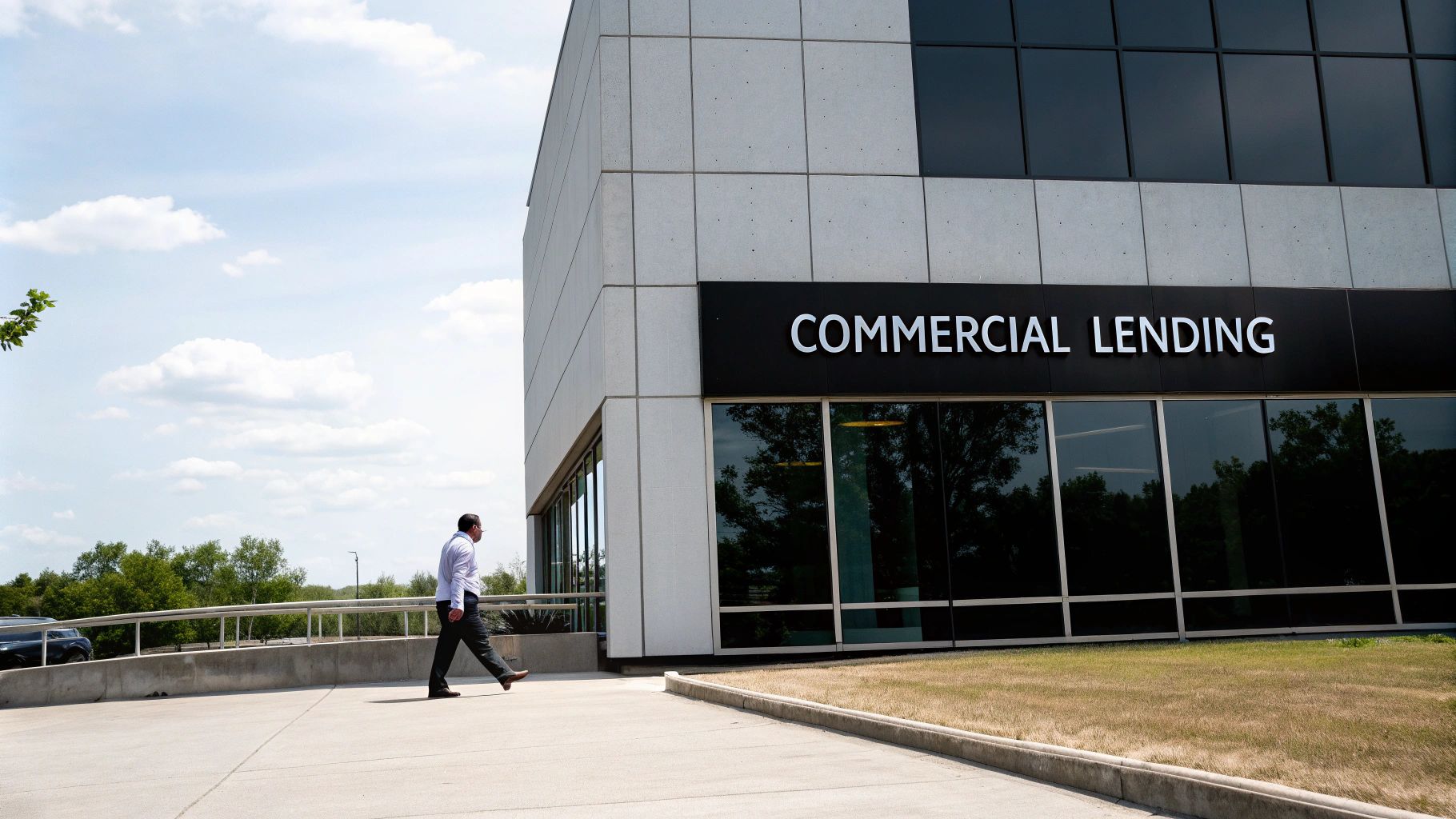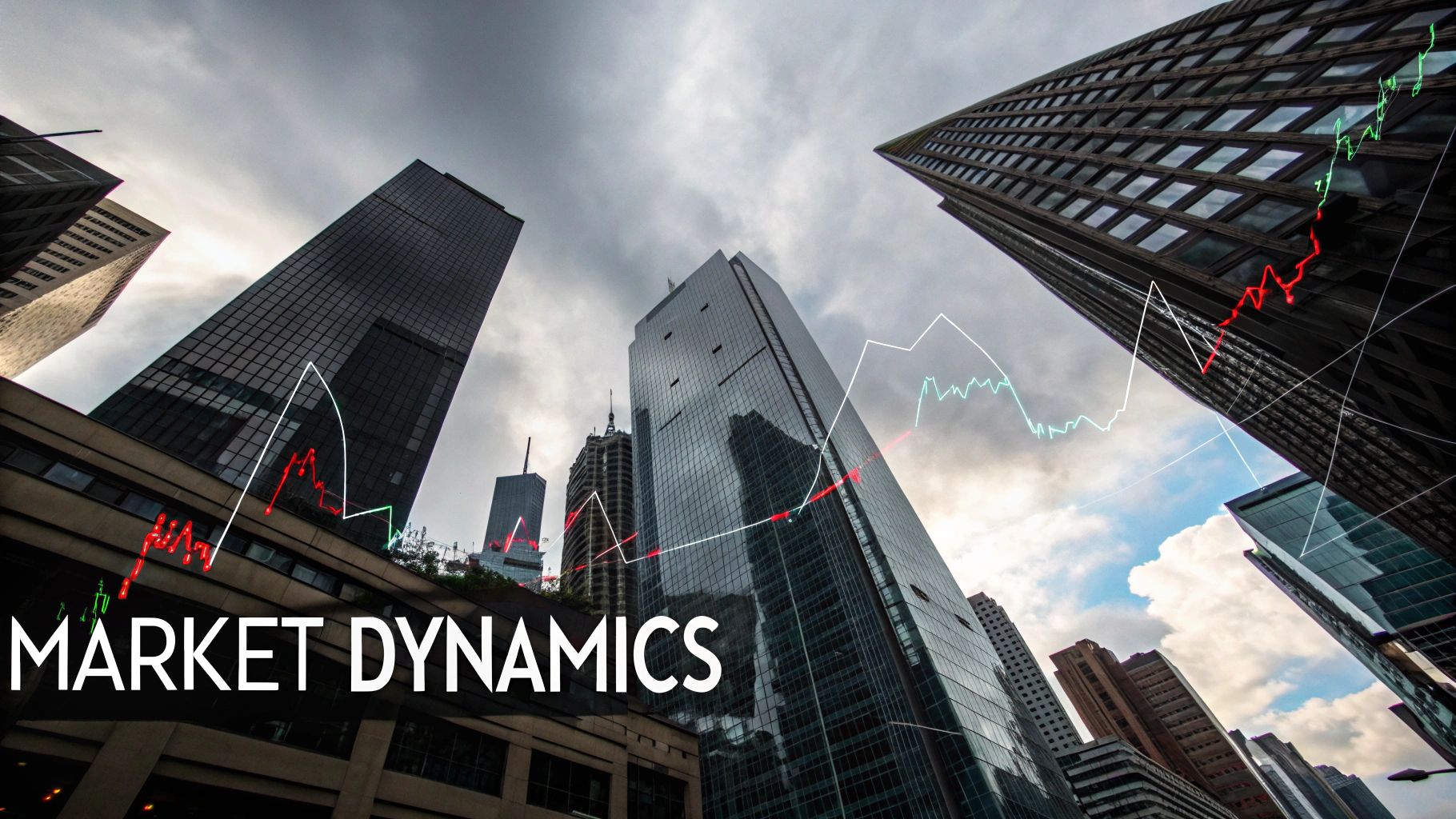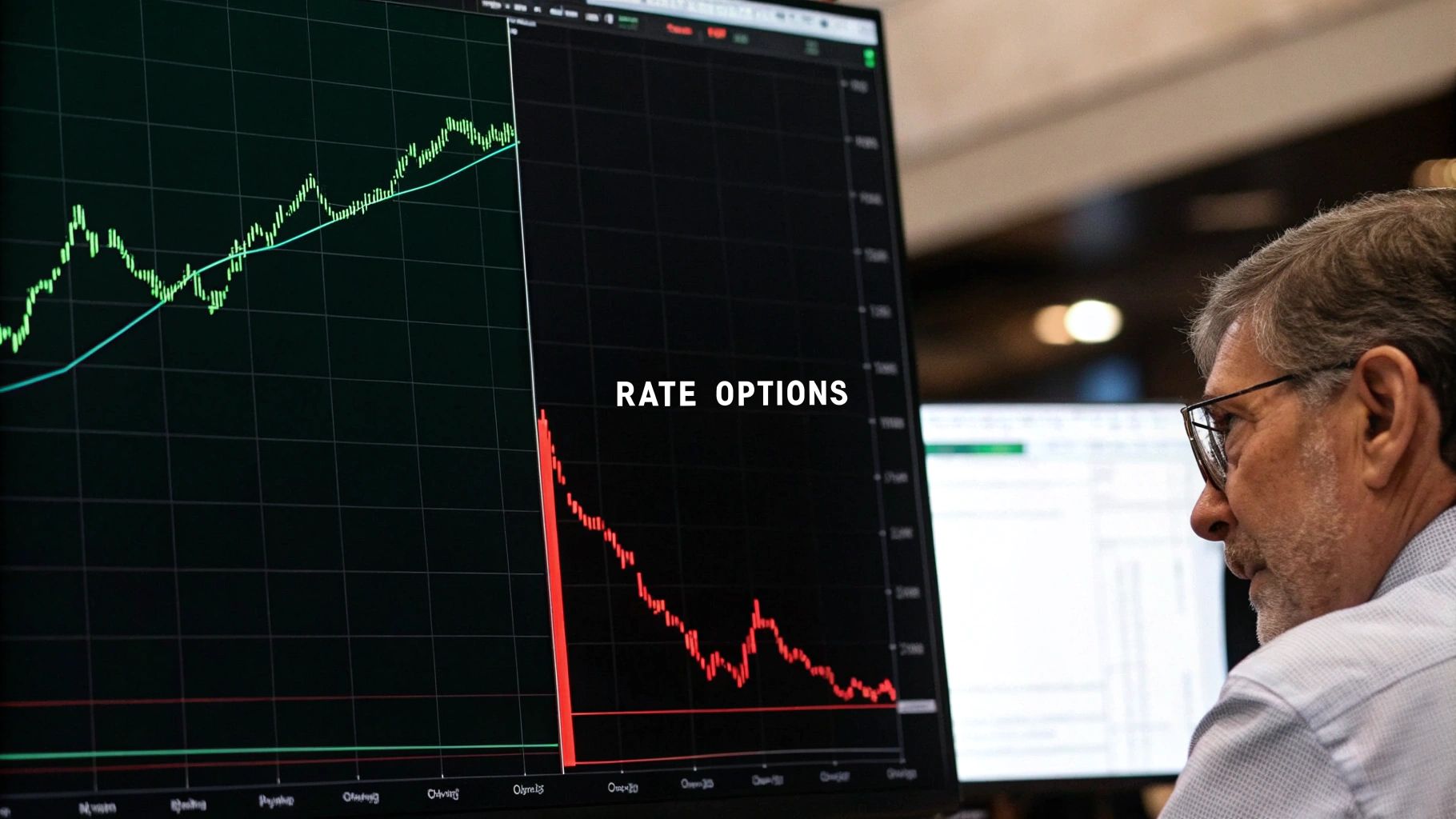Understanding Commercial Mortgage Rates

Securing a commercial mortgage is a crucial step for any business. Understanding the complexities of commercial mortgage rates is equally important. These rates represent the cost of borrowing money for commercial real estate, directly impacting your financing expenses and overall investment returns. Therefore, careful analysis and comparison of these rates are essential before committing to a loan.
Key Factors Influencing Commercial Mortgage Rates
Several factors contribute to the commercial mortgage rate offered by lenders. The prevailing economic climate is a major one. For instance, during times of economic instability, lenders may perceive greater risk, leading to increased rates. Benchmark interest rates set by central banks also play a significant role, influencing the cost of funds for lenders and, consequently, the rates they offer. This connection emphasizes the importance of staying informed about economic trends.
Another key factor is the borrower's credit history. Lenders carefully review a borrower's credit score, financial stability, and debt-to-income ratio to determine their ability to repay the loan. A strong credit profile often results in a lower rate. Furthermore, the loan term, or the length of the repayment period, also influences the rate. Longer-term loans typically have higher rates to compensate lenders for the extended risk. Finally, the loan-to-value ratio (LTV), the percentage of the property's value being financed, affects the rate. A higher LTV generally results in a higher rate due to the increased risk for the lender. This sets the stage for understanding how these rates are structured.
Decoding the Commercial Mortgage Rate Structure
Commercial mortgage rates can be fixed or variable. Fixed rates remain constant throughout the loan term, providing predictable payments. However, this stability might mean missing out on lower rates if market conditions change. Variable rates, conversely, fluctuate with market changes. This means your payments could decrease or increase, introducing uncertainty but potentially offering lower rates during periods of low interest. Choosing the right type depends on your individual risk tolerance and financial outlook.
Understanding the various fees associated with commercial mortgages is also important. These fees can include origination fees, appraisal fees, and closing costs, impacting the total cost of borrowing. Comparing not just rates but also fees across different lenders helps secure the most beneficial terms. Now, let’s explore broader market influences on these rates.
Market Factors Affecting Rates

Understanding the factors that influence commercial mortgage rates is crucial for making sound investment decisions. These rates are constantly affected by wider market shifts. Keeping up with these market changes helps anticipate rate movements and secure the best financing terms.
The Economy’s Impact on Commercial Mortgage Rates
The overall health of the economy is a primary driver of commercial mortgage rates. During periods of economic growth, demand for commercial real estate often increases. This higher demand can lead to increased property values and larger loan amounts, potentially pushing rates upward. As an illustration, a thriving economy might see a surge in businesses seeking commercial space, driving up property prices and financing costs.
Conversely, economic downturns can lead to lenders becoming more cautious. They might tighten lending standards and potentially increase rates to offset perceived risks. A weaker economy can also decrease demand for commercial properties, impacting property values. This creates a complex relationship between economic conditions and commercial mortgage rates.
The Role of Benchmark Interest Rates
Benchmark interest rates set by central banks significantly influence commercial mortgage rates. These benchmarks affect the cost of funds for lenders. As a result, when benchmark rates rise, lenders typically increase commercial mortgage rates to maintain profit margins. Conversely, falling benchmark rates often lead to lower commercial mortgage rates.
Understanding the CMBS Market
The commercial mortgage-backed securities (CMBS) market plays a vital role in the availability and pricing of commercial mortgages. This market involves pooling commercial mortgages together and selling them as securities to investors. The activity within this market can influence the capital available for these mortgages, indirectly affecting rates. A strong CMBS market, for instance, can boost the availability of lending funds, potentially leading to more competitive rates.
Property-Specific Factors
Beyond general market conditions, specific property characteristics influence rates. The property type, its location, and its intended use all factor into a lender's risk assessment. This means a loan for a retail property in a prime location might have a different rate than a loan for an industrial property in a less desirable area. The perceived risk associated with the property directly impacts the offered rate. Furthermore, the LTV remains a key factor. A higher LTV usually means greater risk for the lender, resulting in a higher rate. Securing a lower LTV often leads to better financing terms. Considering both broad economic trends and property-specific details gives borrowers a comprehensive understanding of the forces shaping commercial mortgage rates. This knowledge is crucial when comparing various lender options.
Comparing Different Lender Options
Understanding market dynamics and the CMBS market is crucial for securing the best commercial mortgage rate. However, equally important is comparing different lender options. This comparison is critical because each lender has unique risk assessment procedures and loan products.
Banks and Traditional Lenders
Banks are a frequent starting point for those seeking commercial mortgages. They often offer competitive rates, especially for borrowers with strong credit and established relationships. However, their loan approval processes can be rigorous and time-consuming, potentially requiring extensive documentation and a lower LTV. This necessitates thorough preparation from borrowers.
Credit Unions and Community Banks
Credit unions and community banks provide another avenue for commercial mortgages. They often prioritize local businesses, offering personalized service and potentially more flexible underwriting. This can benefit smaller businesses or those with unique situations. They might also offer competitive rates, especially for members. However, their lending capacity might be less than larger national banks.
Online Lenders
Online lending platforms have greatly expanded options for borrowers. They often provide streamlined applications and quicker funding compared to traditional banks. This speed can be a significant advantage. They also tend to offer a broader range of loan products. However, their rates can sometimes be higher, particularly for those with lower credit scores.
Commercial Mortgage Brokers
Navigating the numerous lender choices can be challenging. This is where commercial mortgage brokers become invaluable. These professionals connect borrowers with suitable lenders, leveraging their wide network to help secure competitive rates. For instance, a broker can help compare offers from various banks, credit unions, and online lenders, saving borrowers time and effort. Brokers also provide guidance during the application process.
Comparing different lenders is essential for obtaining the most advantageous rate. Exploring various avenues and engaging a knowledgeable broker helps navigate the commercial mortgage landscape and secure financing that aligns with your business objectives. Next, let’s delve into the application process itself.
Application Process Guide

After comparing lenders and understanding market forces, navigating the application process is the next crucial step. While potentially complex, it can be broken down into manageable stages. Understanding each step makes the process smoother and increases your chances of success.
Pre-Application Preparation: Laying the Groundwork
Thorough preparation is essential before formally applying. This includes compiling all necessary financial documents, like tax returns, income statements, and balance sheets. Just as with preparing for an exam, organization is key. A detailed analysis of your business's financial health is equally important. This self-assessment helps evaluate your borrowing capacity and identify areas for improvement before approaching a lender. This proactive approach strengthens your application.
Formal Application: Presenting Your Case
With your documents organized, the next step is completing the formal application. Accuracy and completeness are paramount. Any inconsistencies can cause delays or rejection. A flawed application can undermine your efforts. Provide clear, concise answers, ensuring alignment with your supporting documents. This reinforces your credibility with the lender.
Underwriting and Appraisal: Scrutiny and Valuation
Once submitted, the lender begins underwriting, thoroughly reviewing your finances and the property being used as collateral. This is how the lender assesses the lending risk. Simultaneously, an appraiser determines the property's market value, influencing the loan-to-value ratio (LTV), which directly impacts the offered rate. A higher appraisal can strengthen your position.
Loan Approval and Closing: Finalization and Funding
If underwriting is successful and the appraisal meets requirements, the loan is approved. The closing process then finalizes all legal and administrative details, including title insurance and loan documentation. Once complete, the loan is funded, providing the capital you need. Securing a competitive rate is a significant milestone. Each step in the application process plays a crucial role. Diligence and preparation maximize your chances of securing the best financing terms. Now, let's examine how lenders assess risk.
Risk Assessment and Qualification
Securing a commercial mortgage depends on a lender's risk assessment, a process influenced by the current rate environment. This assessment aims to determine the borrower's ability to repay the loan fully and on time. Lenders carefully examine various factors to gauge a borrower’s financial strength and the investment's viability. This evaluation influences loan approval and the specific rate offered.
Key Factors in Risk Assessment
Several factors contribute to this risk assessment. The borrower's creditworthiness is a primary element. A strong credit history, reflecting responsible debt management, signals lower risk and can lead to a more favorable rate. For instance, a high credit score often qualifies a borrower for a lower interest rate.
The LTV also plays a crucial role. A lower LTV, indicating a larger down payment, reduces the lender's risk and often results in a better rate. This is because a larger down payment provides a cushion against potential losses if the borrower defaults. Conversely, a higher LTV typically carries a higher rate due to increased risk.
Property Due Diligence
Lenders also evaluate the property itself. This due diligence involves an appraisal to determine market value, ensuring the loan amount is appropriate. Like inspecting a used car before purchase, lenders verify the property's worth. They also consider the location, property type, and potential income, especially for income-generating properties. A stable income stream lowers perceived risk and can lead to a more competitive rate.
Meeting Qualification Requirements
Lenders set specific qualification requirements, including sufficient cash flow for loan payments, detailed financial statements, and a clear business plan outlining the property's intended use and long-term financial projections. Meeting these requirements demonstrates preparedness and commitment, increasing your chances of loan approval and a favorable rate. Understanding these factors allows borrowers to address potential concerns, strengthen their applications, and improve their chances of securing a competitive rate. This proactive approach builds confidence and increases the likelihood of a positive outcome. Next, let's discuss the choice between fixed and variable rates.
Fixed vs Variable Rates

Effectively navigating the application process paves the way for securing the best commercial mortgage terms. A key decision is choosing between a fixed and variable rate. This choice significantly impacts your long-term financial planning.
Fixed Commercial Mortgage Rates: Stability and Predictability
With a fixed rate, your interest rate remains constant throughout the loan term. This predictability enables accurate budgeting, as monthly payments remain consistent regardless of market changes. This stability is valuable for businesses seeking to minimize financial uncertainty. For example, a fixed rate of 5% for a 10-year term remains at 5% even if market rates fluctuate. However, in a declining interest rate environment, a fixed rate might mean missing out on potential savings.
Variable Commercial Mortgage Rates: Flexibility and Potential Savings
Variable rates, also known as floating or adjustable rates, fluctuate with market conditions. Your interest rate and monthly payments can change over time. This uncertainty requires careful consideration and a higher risk tolerance. For instance, a variable rate tied to the prime rate will adjust as the prime rate changes. This flexibility can be attractive in a low-interest environment, potentially offering lower initial payments. However, rising rates could increase your future financial burden.
Making the Right Choice: Assessing Your Needs
The decision hinges on your specific circumstances, risk tolerance, and financial projections. If you prioritize predictable payments, a fixed rate might be suitable. If you're comfortable with some risk and expect rates to remain stable or decline, a variable rate could offer savings. Analyzing your business's financials, consulting with a financial advisor, and comparing current rates offered by different lenders can help determine the optimal rate structure. Finally, let’s recap the key takeaways.
Conclusion and Key Takeaways
Understanding commercial mortgage rates is essential for financing commercial real estate. This post explored the various aspects of these rates, from influencing factors to lender options. By considering these key takeaways, you can navigate commercial financing and secure the best terms.
The Importance of Market Awareness
Commercial mortgage rates are constantly influenced by market dynamics, including economic conditions and benchmark interest rates. Staying informed helps anticipate potential changes and make informed decisions. For example, understanding the link between Treasury bond yields and commercial mortgage rates can help predict future trends.
Choosing the Right Lender
Selecting the right lender is crucial. Banks, credit unions, online lenders, and brokers offer different advantages and disadvantages. Comparing rates and fees across lenders is vital. A commercial mortgage broker can provide valuable guidance and access to a wider range of lending options.
Navigating the Application Process
A successful application requires thorough preparation and accuracy. Gathering necessary financial documentation and maintaining accuracy throughout the process improves your approval chances. Understanding the lender's risk assessment criteria, including creditworthiness and the LTV, is also essential.
Fixed vs. Variable Rate Considerations
The choice between a fixed and a variable rate depends on individual risk tolerance and financial outlook. Fixed rates provide stability, while variable rates offer potential savings but carry the risk of future increases. Carefully weighing these options aligns your financing strategy with your long-term goals.
Making informed decisions about commercial mortgage rates significantly impacts your business's financial health and success. For expert guidance and access to the best commercial mortgage rates in the UK, consider partnering with theHMOmortgagebroker. Their specialized knowledge and platform can help you navigate the complexities of commercial financing and secure the optimal terms for your investment. Learn more about theHMOmortgagebroker and explore their range of services.

Property Finance Specialist
David Sampson is a property finance specialist with expertise in HMO mortgages and investment property solutions.
